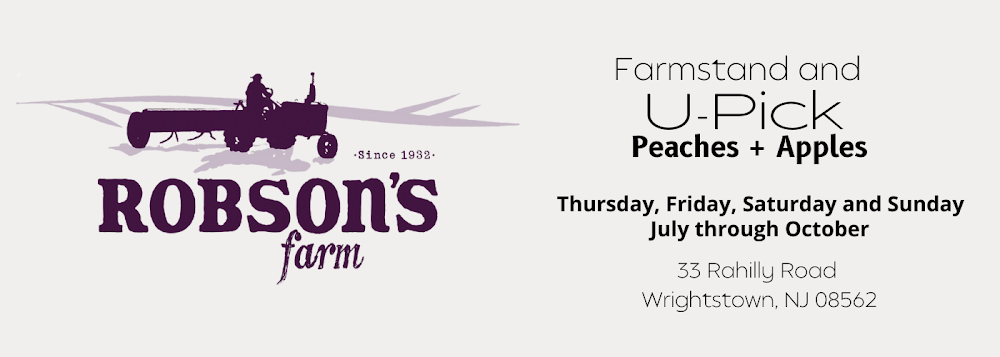As we transition a portion of our farm to "Unconventional" farming practices I am met with a lot of excitement and encouragement.
But that's only 4 acres of the 40. Some of the remaining 36 acres will be planted in a cover crop as we make plans to expand our "unconventional" production.
And on the rest of the farm we use the Integrated Pest Management program. While there are a lot of people talking about organically grown produce these days, conventional agriculture still has a viable place....especially true when it comes to producing things that are heavily prone to disease...namely fruit.
This is where local and organic face off.
Some things, at the quality we demand and in the quantity we demand are not as conducive to being grown organically in certain parts of the country.
The Integrated Pest Management program is run through our state's land grant school, Rutgers. Twice a week, through out the season, trained scouts come and check for pests and make recommendations.
The whole idea of the program is to look at thresholds for pests and disease. This threshold is monitored and only acted upon when it reaches a level of economic loss (you wouldn't want to buy peaches that have been munched on by Sap Beatles, do you?). Some loss is to be expected but the program is really aimed to have a thoughtful impact on pests and low impact on the environment.
"Backed by constant data collection and research, the IPM program tries to find the best alternatives to pesticides."
One weekend at the tailgate market last year, a women walked into my tent where a few others were shopping and boomed, "What do you do besides spraying everything every chance you get?!"
I fear that this is what many people think of conventional agriculture and it is just not true. Spraying is not fun or quick or cheap or mindless. Nope...it's time consuming, mind blowing-ly expensive - like $900 for 2 gallons...yes only 2 gallons, and you can get audited by the DEP and fined if your records aren't perfect, etc. etc. - not fun.
According to Rutgers there are over 100 farms in NJ that use this program to help them deliver quality products to consumers. Many of these farmers are also using cover crops, compost, and crop rotation to promote soil health, plant health, and delicious veggies!
Get to know your LOCAL farmer.

.jpg)
Reading through your blog! Very neat! For our family, I always choose local over organic... the logic of buying organic apples that are still sprayed with something from across the country (that has to be packaged and trucked over) vs. going to the apple orchard and picking 9 bushels of apples that are sprayed only as much as needed (what I feel most farmers do because it is so expensive) just makes no sense to me. I am hoping to start planting an orchard soon (we don't farm produce) because I spend a pretty penny every year picking peaches, strawberries, and apples! haha. Money well spent though. :)
ReplyDeleteThank you so much for sharing my love of all things local! We planted the apple orchard today which was very exciting. And I laughed when I read your blog post about lambs in the house...I was a 4-Her for years and had a lamb romping around our house in a diaper for a little while...being bottle fed every few hours! Too cute!
DeleteIt is so nice article. I was really satisfied by seeing this article... Automated Notifications for SAP
ReplyDelete